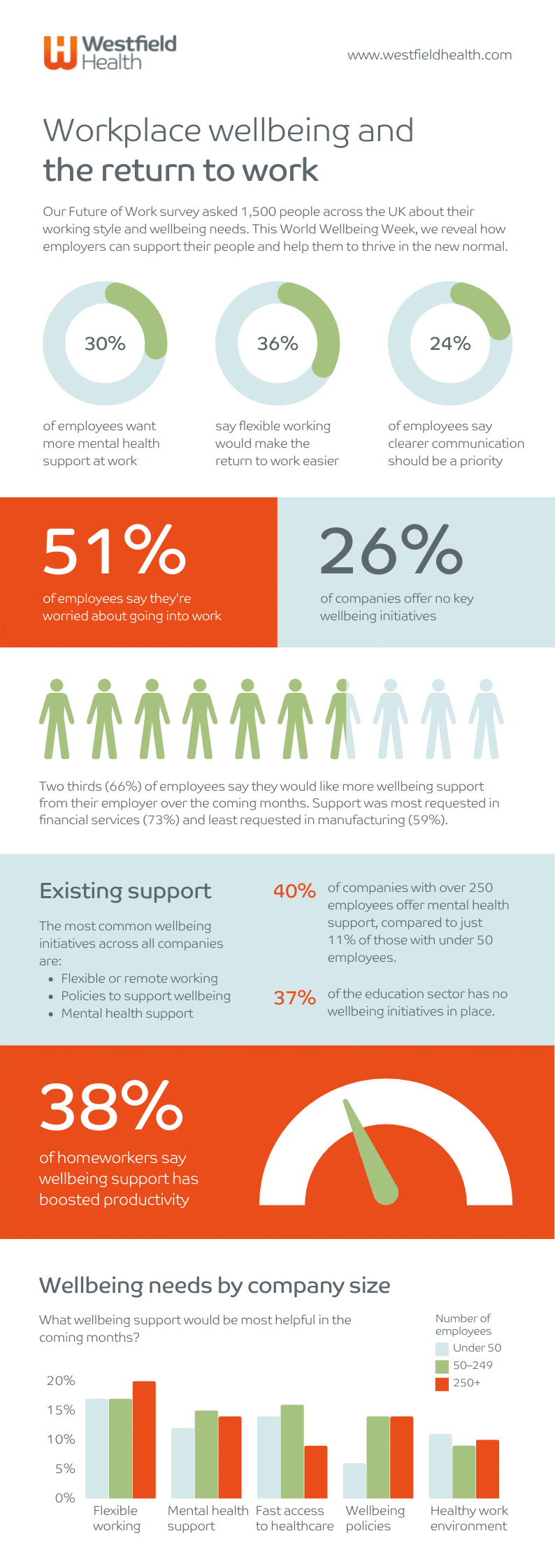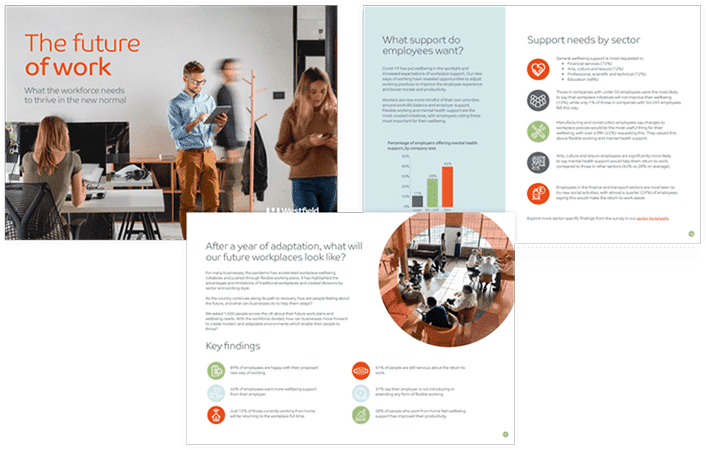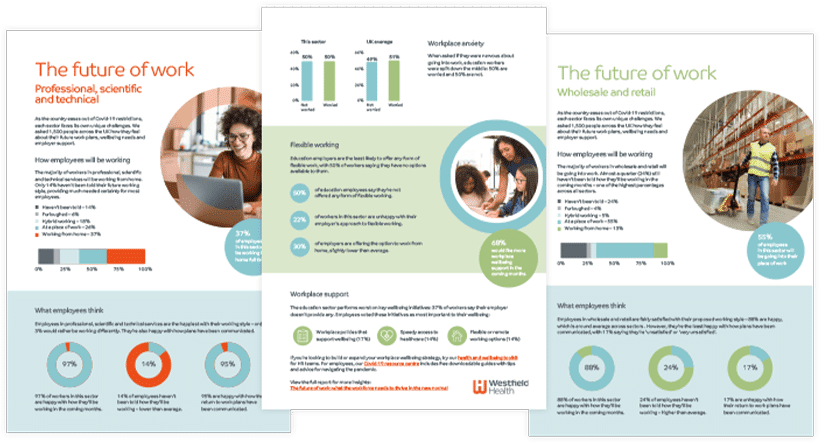This World Wellbeing Week, we’re exploring how employers can support their people and help them to thrive in the new normal. In our latest survey, The Future of Work, we asked 1,500 people across the UK about their working style and wellbeing needs.
While Covid-19 restrictions are easing, there’s still a significant need for support. Most employers offer wellbeing initiatives for their people, but over a quarter (26%) offer none at all. With many sectors transitioning into new working styles, 51% of employees say they’re worried about going into work. So what does wellbeing look like in the new normal, and how can employers support their people through the coming months?

Click here to download this infographic as an image
Click here to download this infographic as PDF
What wellbeing support do employees want?
Two thirds (66%) of employees say they would like more wellbeing support from their employer over the coming months, but where is help needed most?
We asked employees which wellbeing initiatives would help make the return to work easier for them. Flexible and remote working options were the most requested, with 19% of workers saying this would be the most helpful thing for their wellbeing.
Mental health support was the second most popular with 15% of votes, while speedy access to healthcare and policies to support wellbeing were tied in third at 11%.
Only 8% of employees said “none of these”, suggesting that there’s plenty of scope for employers to improve the support they offer and help their people transition into their new working lives.
The impact of wellbeing
Earlier this year, we explored the link between wellbeing and productivity in our Coping after Covid report, and our latest research confirms that employees agree: wellbeing boosts performance.
Employees noticed a positive change in both their engagement and productivity thanks to flexible working and wellbeing schemes. In total, 29% say that their employer’s wellbeing support made them more productive. The impact was even higher in some sectors, with over half (54%) of those in financial services saying they feel their productivity increased.
When it comes to engagement, flexible working was seen as a valuable initiative. Of those who have been working from home, 43% say they feel more engaged due to their employer’s flexible working options, and only 6% say their engagement has decreased.
Are employers delivering enough?
The most common wellbeing initiatives across all companies are flexible and remote working options, policies to support wellbeing and mental health support.
While most employers offer some wellbeing support, there are noticeable inequalities across different sectors and business sizes.
The financial services sector is best served in terms of wellbeing, with 89% of companies offering at least one initiative. This is in stark contrast to the education sector, where 37% of employers have no wellbeing initiatives in place at all.
Those in larger companies are far more likely to have access to mental health support, with 40% of businesses with over 250 employees offering it. In companies with under 50 employees, this figure drops to 11%.
Furloughed employees feel they’re getting less wellbeing support than those who’ve been working from home or going into work, with 37% saying they’re not offered any key wellbeing initiatives, compared to just 20% of those who’ve been working from home.
Read the report
The Future of Work report takes an in-depth look at the value of wellbeing in the new normal. You can download the full report as a free PDF.
The future of work: what the workforce needs to thrive in the new normal
To see how your sector compares to the average, including the key challenges that face your people, try our quick-reference sector factsheets:

